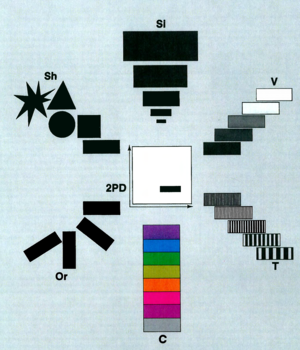Now in its eleventh year, the LibLab Fellows program is an experiment in library-based learning guided by a critical consideration of just what we mean by “the digital.” Fellows engage theory and practice of digital scholarship through open lab hours and weekly discussion meetings during the fall semester and spring semester
Week 1 - September 11: Liz Losh (special guest)
This week, in lieu of meeting, you will be asked to pick one of the two events below.
- Sept 11 4:30 Sci 101 Public Lecture
- Sept 12 10am LibLab Workshop
“AI Literacy from Prompt Engineering to Electronic Literature” In an executive order issued in April, the Trump administration championed “AI literacy” as a goal for K-12 education. However, the literacy imagined in this document appears to be functional in nature rather than critical or creative, intended to approach new technologies instrumentally rather than question their premises or design. This talk looks at AI literacy initiatives in higher education and the work of task forces of the Modern Language Association to argue for more capacious approaches to curricular reform. It also examines a growing literature about “prompt engineering” that promises to impart career skills. In imagining a greater role for humanities scholarship in AI literacy, it discusses how electronic literature has used the dynamic tension of prompting to simultaneously reveal and conceal power relations.
Liz Losh is the Duane A. and Virginia S. Dittman Professor of American Studies and English with a specialization in New Media Ecologies at William & Mary, where she also directs the Equality Lab. She is the is the author of Selfie Democracy: The New Digital Politics of Disruption and Insurrection (MIT Press, 2022) and The War on Learning: Gaining Ground in the Digital University (MIT Press, 2014) among other books and is currently co-chairing the Modern Language Association Task Force on Generative AI Initiatives.
Community members who wish to join Losh and the AI Inquiry group for a workshop from 10 -11:30am on Friday, September 12 are invited to express interest here; workshop space is limited.
Week 2 - September 17: Introductions, Framing & The Infrastructure of the Internet
An introduction to the terrain + the internet and its modalities. This week, we introduce the fellowship and begin by looking at what do we mean when we say internet? What makes it different from other forms of information technology and where can we find it? The internet, the idea and its physical infrastructure, permeates every hour of our days. Understanding its history and the metaphors we use to give shape to it, become a daily endevor, so as to continue to have a critical eye towards it.
Reflection: As we move from the physical to the digital. What new information is gained? What is lost? Is this even a helpful dynamic?
Readings:
- ‘As We May Think by Vannevar Bush’
- When was this article written? What does the Memex anticipate? What are other concepts still applicable today?
- Abbate, Janet. “Government, Business, and the Making of the Internet
Week 3 - September 24: Do Artifacts Have Politics? + Github pages + HTML/CSS/MARKDOWN
What can things do? Considering the perspective of Science and Technology Studies. Are the technologies that we will study neutral? In other words, is the saying: “it depends how you use the tool that matters” universally true or is technology inherently biased?
Readings:
- Winner, Langdon. “Do Artifacts Have Politics?” from The Whale and the Reactor (1986).
-
Biss, Eula. “Time and Distance Overcome” from Notes from No Man’s Land (2009).
- Introduction to Github + its history
Week 4 - October 1: Metadata / Data + Collection Builder
Can data be neutral? What are the ethical considerations of collecting and analyzing data? We will also learn Collection Builder
Why don’t archivists digitize everything?
- Guest speaker: Emily Higgs Kopin, Head of Digital Collections Strategy
Week 5 - October 8: Maps
What are the politics of maps? How does the platform used to create and provide access to geographic information shape our understanding of space? Can you map nothing?
FALL BREAK October 15
Week 6 - October 22 AI and the Textpocalypse
Kirschenbaum, Matthew. Prepare for the Textpocalypse
Week 7 - October 29: Language of Visualization + Collection Builder
Can we move beyond pleasing images representing data to and understand that visualizations are a language in themselves? In other words, rather than just understanding visualizations as representations of data can we understand them as data?
In this process, what do we gain access to and, oppositely, what is effaced or made invisible?
- Hadley Wickham. Tidy Data
- Drucker, Johanna. “Graphical Approaches to the Digital Humanities.” A New Companion to Digital Humanities, edited by Susan Schreibman et al. (2016): 290–302.
- Guest speaker: James Truitt, Digital Archivist
Week 8 - November 5: Accessibility
Can we democratize knowledge? How can we make information more accessible for everyone?
- Guest speakers: Jessica Brangiel, Electronic Resources Librarian & Jenn Moore, Course Content Accessibility Manager
Week 9 - November 12: Letterpress
Week 10 - November 19: Immersive Technologies
What role do emerging technologies play in higher education?
Nakamura, Lisa. Virtous Virtual Realities
NOVEMBER 26th No Cass
Week 11 - December 3: Surveillance and embodiment
Do we live in a survaillance culture? What are the privacy tradeoffs you make to use the tools you like? More importantly, do you know the liniage of survilance?
Browne, Simone. Dark Matters: On the Surveillance of Blackness. Introduction and Ch. 1
